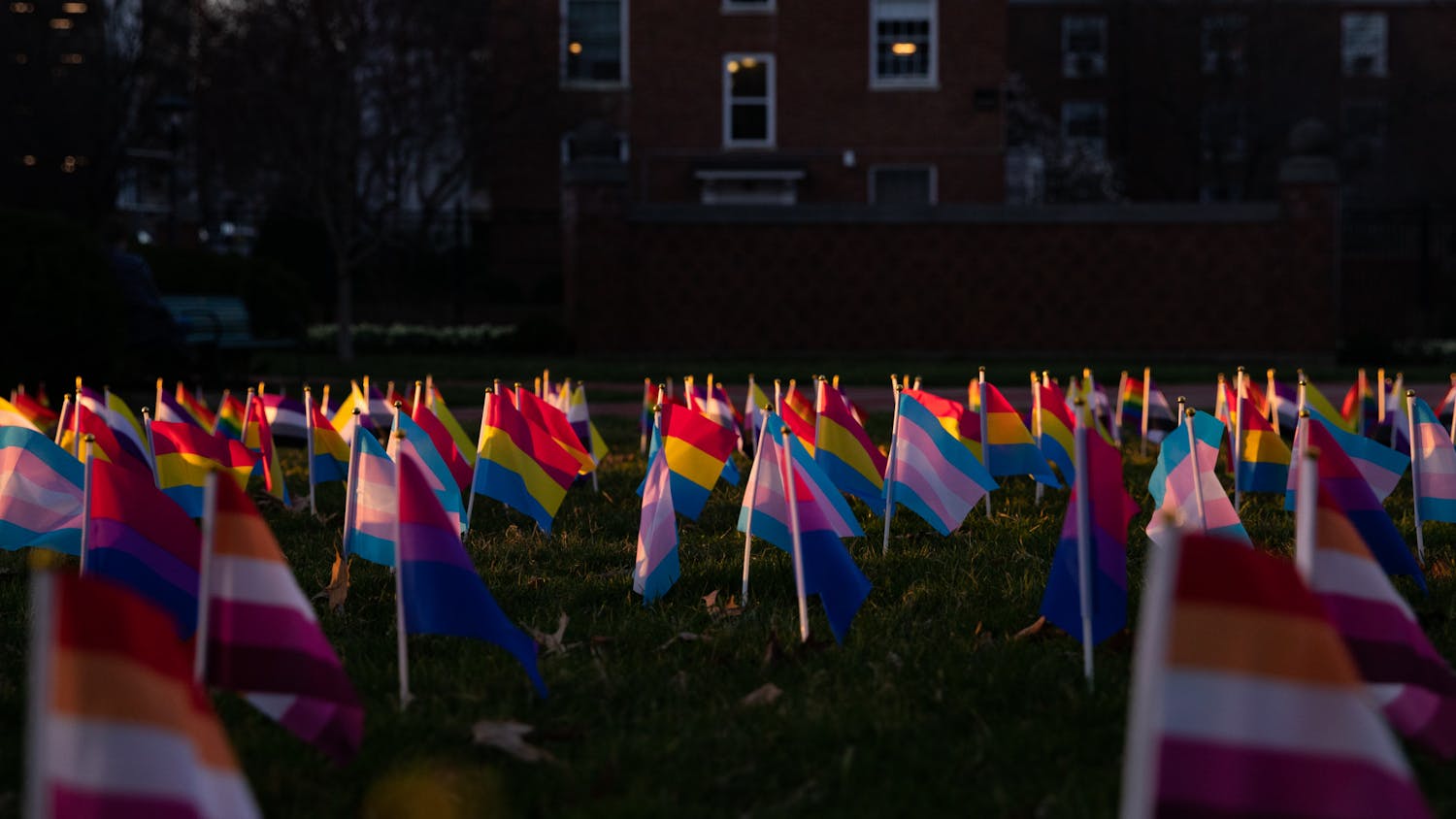Martin Luther King Jr. would have turned 94 last Sunday had he not been assassinated in 1968 at 39 years old. In memory for all he accomplished and could have done, Ohio University celebrated Martin Luther King Jr. Day this year with a week of events.
The week-long celebration kicked off Monday with a silent march from Galbreath Chapel, 43 University Terrace, to Baker Center, starting at 10 a.m. A brunch followed the march in Baker Ballroom featuring vocal and dance performances and a keynote address by alumnus Timothy Brown, a ministry leader, author, educator and motivational speaker.
Tuesday marked movie day at the Athena Cinema, with a free screening at 3 p.m. of “Till,” the true story about Mamie Till-Mobley’s pursuit of justice for her son, Emmett Till. Till was brutally tortured and lynched in 1955 at 14 years old while visiting his cousins in Mississippi, an injustice that shined light on the brutality of Jim Crow segregation and was an early ignition to the Civil Rights movement.
Alex Kamody, director of the Athena, said the event was a collaboration between the cinema and the Martin Luther King Jr. Celebration Week Committee. The event was sponsored by the Office of Diversity and Inclusion, which allowed the showing to be free and open to all.
“We really appreciate that generosity because then you get a more diverse audience of people of different ages and different backgrounds,” Kamody said.
She said “Till” was chosen to show in connection with other planned programming for the event series, specifically Tuesday night’s fireside chat with Reverend Wheeler Parker, the cousin and best friend of the late Emmett Till. He is also the last living witness to Till’s kidnapping. Parker wrote a memoir about the incident, “A Few Days Full of Trouble,” which was released last week and depicted his first-hand witness of the event.
“When anyone mostly talks about Emmett, there’s a couple things that stick out,” Parker said. “Fun, full of jokes, never had a dull day in his life. Never saw him out of character like that.”
Parker recalled running around with Till in his youth, playfully reenacting Till’s stutter, a lingering effect from a 1947 bout with polio. He chuckled when remembering Till’s insistence to join their school baseball competition, passionately losing the game for their team. Parker said Till was a personality and a force and that it was never a dull day with him.
Among the joyous memories were, of course, the tragic ones.
“If you didn’t live in the South during that time, you have no idea,” Parker said. “I don’t care how much you read– if you didn’t live it and experience it, you have no idea of what the atmosphere was like. You had no protection whatsoever under the law.”
Till traveled from Chicago to visit family in Mississippi, and Parker recalls the trip vividly. Parker said there were rules in the South for how one should act and interact, especially for Black men. Parker said he had grown up with the practices of the South ingrained in him, but Till had not had the same understanding.
He was present in the shop with Till where many accounts allege Till said something to Carolyn Bryant, the cashier, and he remembers clearly what happened within the store: nothing. Instead, Parker said any interaction occurred when Bryant, the wife and sister-in-law of Till’s later murderers, exited the store after Till and Parker had left and were standing outside.
“(Till) liked to be the center of attention, loved to make people laugh,” Parker said. “She (Bryant) comes out and he gives just this little wolf whistle. In Mississippi in 1955, that was a death sentence.”
The family sped away in their car, eventually hopping from the vehicle and running into the cotton field to be sure they weren’t being followed. Parker recalled dust flying everywhere and worrying until the car behind them passed by. He said once the coast was clear, Till said he did not want to be sent home, so they decided not to tell their grandfather.
Several days later, late at night, people knocked on the door asking about two boys from Chicago, specifically requesting the boy who had said something to Bryant. The intruders mentioned nothing about a whistle.
The men went through the house, bedroom to bedroom. Parker said the men came into his room first, and he pretended to be asleep. The men had a pistol, and there were no lights on in the house, so when he snuck a peak, they were only illuminated by a flare they held. He began to pray.
“I’m shaking like a leaf on a tree because I’m going to die, and at 16 I was not trying to die,” Parker said. “It was pure terror.”
Parker recalled his grandmother begging them not to take his little cousin once they moved on to the next bedroom. He said she ran next door to a white family but they would not help. He said that was the last time they saw Till alive.
“Every family in the South has a story to tell,” Parker said. “One guy is talking about his cousin (being) killed because of a reckless eyeball. Normally nothing would have been said. Something about Till’s story, it went all over the world.”
Despite the mass conversations the story sparked, Parker said much of the media coverage and mass discussion about his cousin portrayed him unfairly. Parker had been 16 at the time but said he was not interviewed about the incident until 1985 – 30 years later. For decades, he said, people talked about Till’s murder in the context of horrible misconstructions of Till’s character, even saying the 14-year-old “deserved” to be tortured and murdered. Parker said a lot of good legislatively and progressively came from the awful event, but he can never forget the price his cousin was forced to pay.
“Be patient,” Parker said. “I was at the signing of the Emmett Till Anti-Lynching Bill with President Biden. You know who else was there? Ida B. Well’s great-granddaughter. She said, ‘my great grandmother was here 100 years ago trying to get an anti-lynching bill.’ The wheels of justice grind, but they grind slow. Be patient, and persistent.”
The rest of the week will offer further events for anyone who was unable to attend the first few days of the celebration or who wish to participate more. Wednesday will hold a Black Excellence Panel with OU alumni. The event will start at 6 p.m. and take place via Microsoft Teams. Thursday sports a service fair in collaboration with the Center for Campus and Community Engagement in Baker room 240/242 from noon to 3 p.m.
The week will end with a comedy and variety show in Baker Theatre from 6:30 p.m. to 9 p.m. The program is a collaboration between the Black Student Cultural Programming Board, the Multicultural Center and Campus Involvement Center.
The week of events centers around the theme of compassion, chosen as one of King’s well-remembered traits. Parker reiterated the importance of compassion in justice.
“We come here to talk about the history, that’s all we can,” Parker said. “Hate has no place in the human race. Everybody’s gonna get an opportunity – make it good. Do what’s right, serve people. We’re here to serve one another, help one another. That’s the best, most important thing that any person can do.”
km053019@ohio.edu
Editor-in-Chief






